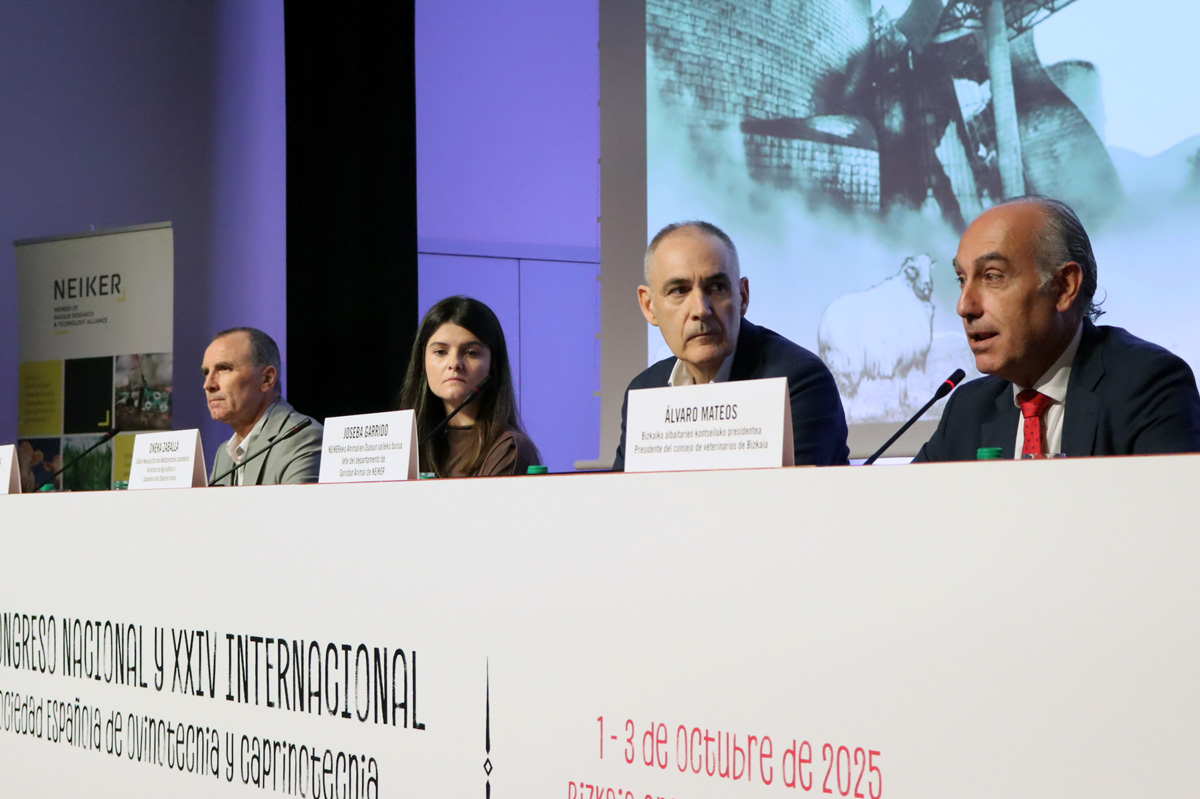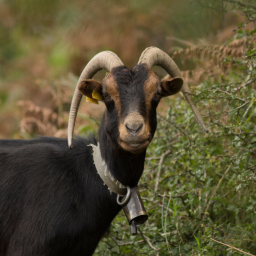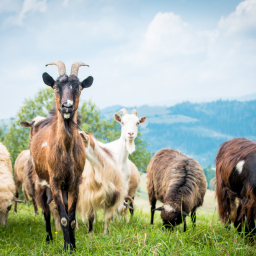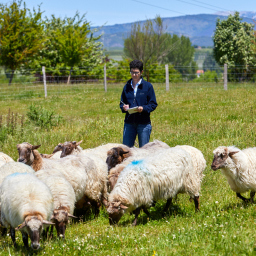NEW
The health and sustainability of sheep and goats, the focus of the SEOC convention in Bilbao
3 October 2025- This year, the NEIKER technology centre organised the 48th National and 24th International Congress of the Spanish Society of Sheep and Goat Farming (SEOC) to analyse the current situation in the small ruminant sector.
- Until Friday, Bizkaia Aretoa will host presentations, round tables and scientific communications given by professionals from the fields of research, academia, technology and business.
More than 100 specialists from the research, academic, technical and business fields of the small ruminant sector are meeting this week at the Bizkaia Aretoa in Bilbao for the 48th National and 24th International Congress of the Spanish Society of Sheep and Goat Breeding (SEOC). The meeting organised this year by the NEIKER technology centre, an entity dependent on the Basque Government’s Department of Food, Rural Development, Agriculture and Fisheries, seeks to analyse scientific and technical advances in this field, share professional experiences and address the main challenges shaping the evolution of sheep and goat production.
As an organising body and leader in applied research, NEIKER actively participates in the programme by presenting some of the results obtained in its most recent work. ‘This research addresses issues such as health, nutrition, genetics, reproduction and sustainability, and reflects the centre’s efforts to contribute scientific knowledge and practical solutions to the current challenges facing the sector,’ explains Jesse Barandika, researcher at NEIKER’s Animal Health Department and president of SEOC.
From today until Friday, the event will feature presentations, round tables and scientific communications combining technical issues with contextual analysis on sustainability, climate change adaptation and biodiversity management.
Critical issues for the sector
Among the topics analysed during the conference is the situation of bluetongue, a disease that continues to have a major impact on sheep and goat livestock. According to the researcher, ‘the main problem is not only the disease itself, but the lack of standardised criteria for action among the different administrations, which complicates the prevention and management of outbreaks. The round table will seek to examine these challenges and analyse prevention strategies for the sector.’
Climate change also occupies a central place at the conference. One of the presentations reflects the perception of livestock professionals regarding this emerging phenomenon and their experiences of adaptation, with the aim of laying the foundations for developing strategies that respond to the diversity of situations in the sector.
In addition, the SEOC conferences address the issue of coexistence between extensive livestock farming and wolves, bringing together participants from the livestock, research and academic fields to analyse alternatives that reconcile the conservation of this protected species with productive activity, without compromising the viability of farms.
Focus on sustainability
With an eye on the future of the sector, the conference is dedicating a specific session to goat meat, whose production is in decline, with a progressive reduction that could jeopardise the continuity of this activity. This subsector, representative of extensive farming and agro-ecosystem benefits such as landscape conservation, biodiversity maintenance and soil fertility improvement, needs to raise awareness of its situation, values and possibilities in the face of current challenges.
As Barandika points out, ‘although the products and production methods of extensive goat meat farming are in line with current consumer demands, marketing is not progressing at the necessary pace. It is therefore essential to raise the profile of the sector and strengthen institutional support to ensure its sustainability.’ To respond to this challenge, the session analyses risk factors, opportunities and strategies to revitalise this production and ensure its continuity in rural areas.
About SEOC
The Spanish Society of Sheep and Goat Farming (SEOC), a non-profit association founded in 1975, brings together professionals in sheep and goat production with the aim of promoting research, exchanging knowledge and disseminating scientific advances in this field. Its high-level conferences, seminars and training courses have established themselves as a national and international benchmark, fostering collaboration between researchers, technicians and producers to promote innovation, sustainability and competitiveness in small ruminant production.
Through these conferences, which have become a national and international benchmark, the association contributes to training in the sector through high-level seminars and courses.






